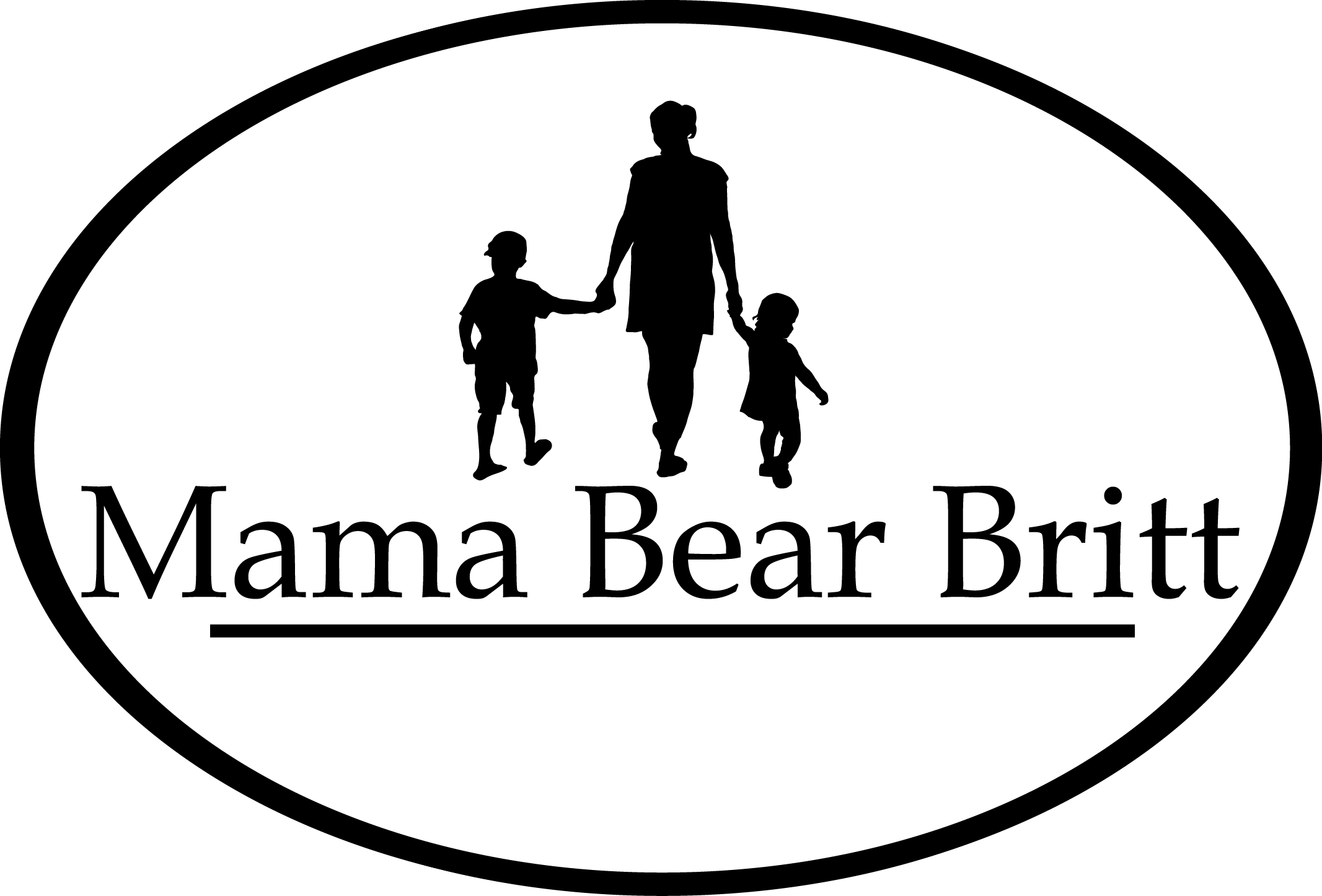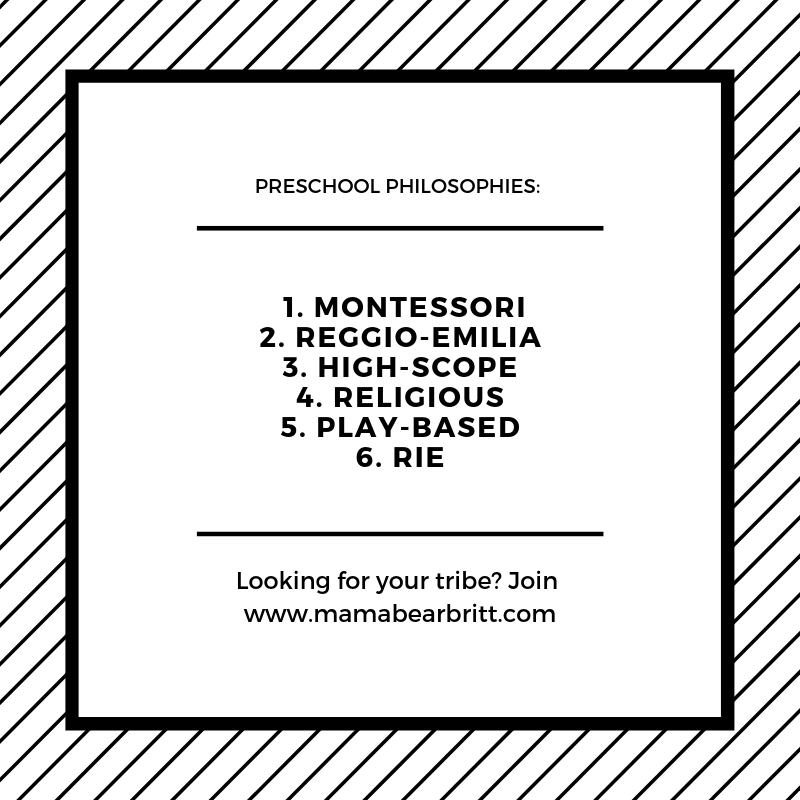Montessori, Reggio-Emilia, RIE, etc.
Preschool Philosophies you Need to Know:
Ever wonder how a preschool plans their curriculum and activities? That is where a preschool philosophy comes into play. This is what guides the school in their overall structure and feel. There are many types of philosophies to choose from and it can become a bit confusing. Familiarize yourself with what is offered and decide what is important to you and your family.
The main preschool philosophies that you will encounter, at least from my experience in Southern California, are play-based, Montessori, Reggio-Emilia, highscope, and religious. You may also encounter the RIE philosophy with schools that are serving the infant population.
Outline of Preschool Philosophies:
Montessori: A philosophy and term coined by Maria Montessori, an Italian educator in the early 1900s. Children are the learners and teachers are mere guides to help facilitate and foster their Education. Hands-on activities are used and referred to in the classroom as “work.” The main categories are Practical life (responsibility and taking care of yourself materials), language, math, sensorial (developing different senses) and cultural studies (geography, science, botany, zoology etc.).
There are Montessori accreditations for schools to apply and be associated with, Association Montessori Internationale (AMI) or American Montessori Society (AMS). This will help determine if the school is truly operating as a Montessori school. Unfortunately, any school is able to call themselves “Montessori,”, but may not be truly functioning as one.
Reggio-Emilia: Developed by Louis Malaguzzi in Reggio Emilia, Italy. This is a child-centered approach, where learning is developed by exploration of various materials, tools, and activities. The teacher in this type of environment is a facilitator and a collaborator with the student. Teachers tend to work on projects with students and extend learning by use of thoughtful questions and materials to help elaborate a topic. The teacher will pay special attention to documenting the child’s progress throughout the year as a form of assessment as well as a learning tool for the student. There is also a lot of consideration given to the environment, with use of natural light, plants, wood materials and so forth.
High Scope: This curriculum focuses on nurturing relationships between teacher and child, engaging the child by use of materials, tools, and activities within the classroom and is also a child-focused approach. Children will guide their own learning through a play-based structure, with the help of a nurturing teacher to guide and help them explore and make decisions.
Religious: These are usually play based schools that incorporate a religious curriculum by use of bible stories, visitation of the religious facility and prayer.
Play based: Most of the learning itself is done through play. A good quality teacher will help facilitate play and social interactions by prepping the classroom with specific materials that change throughout the school year. Materials will be picked based on the child’s interest, class themes and even to help develop certain skill sets. Activities are child-directed, meaning the child will determine how to play with the item, even though the items may be chosen by the teacher. A play based classroom is usually divided by centers where the children are able to gravitate towards toys/activities they are interested in such as, art, blocks/buildings, dramatic play (kitchen/store/dress ups), sensorial tables (water/rice/beans/sand) etc. A play based school usually does not spend a great deal of time on “academics,” but rather, spends more time on quality play and social interactions.
RIE: "Resources for Infant Educarers" a term coined by Magda Gerber. The basis of the RIE philosophy is respect. This is done by treating the infant as an individual and not as an object. For example, before caring for the infant i.e. changing their diaper, picking them up, feeding them etc. you would tell the infant and wait for a response. "Your diaper needs a change, I am going to pick you up and change your diaper." The thought behind this is to help build a confident, independent, competent, and well-adjusted individual.
For a more in-depth list of school philosophies, visit https://www.greatschools.org/gk/articles/preschool-philosophies/










